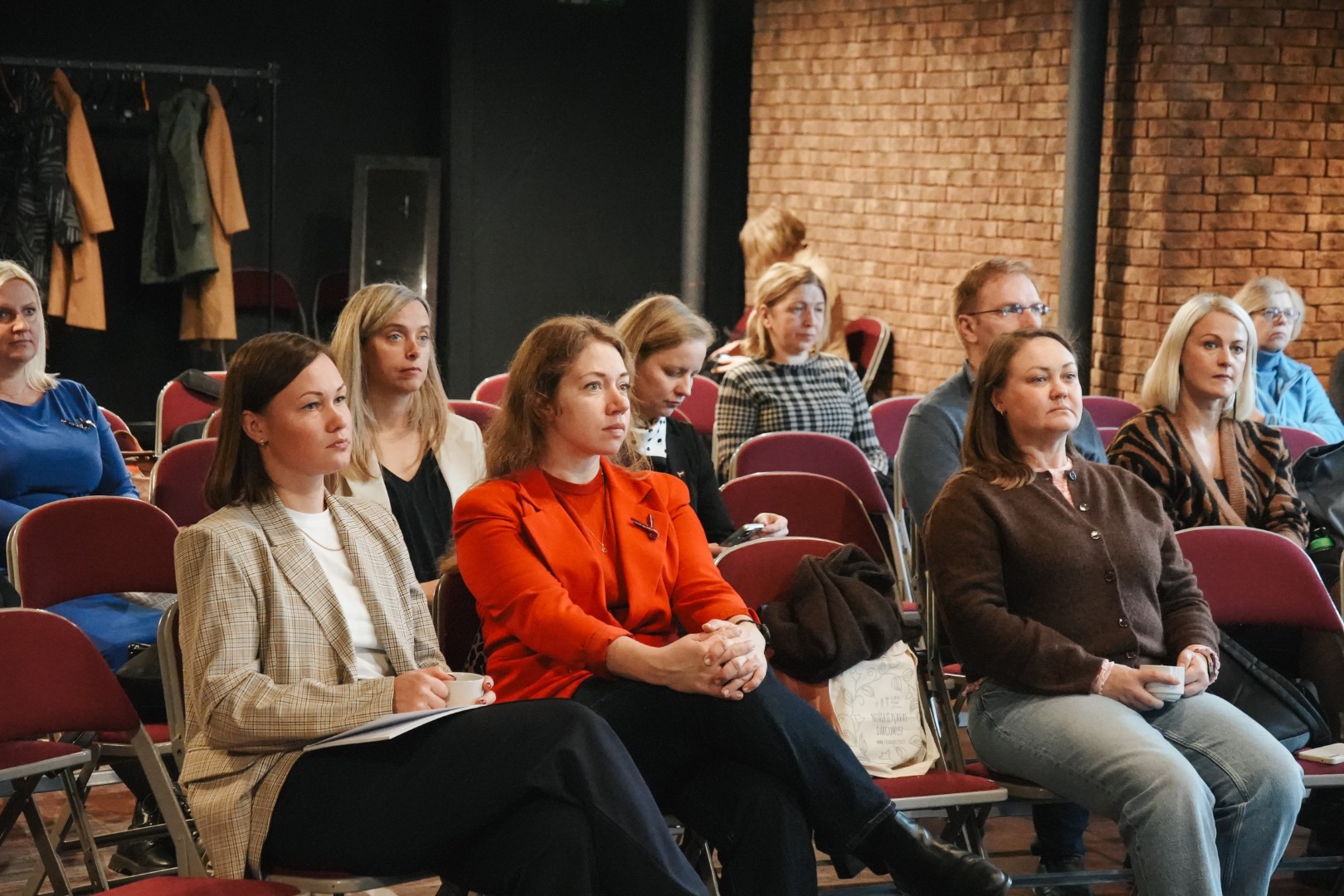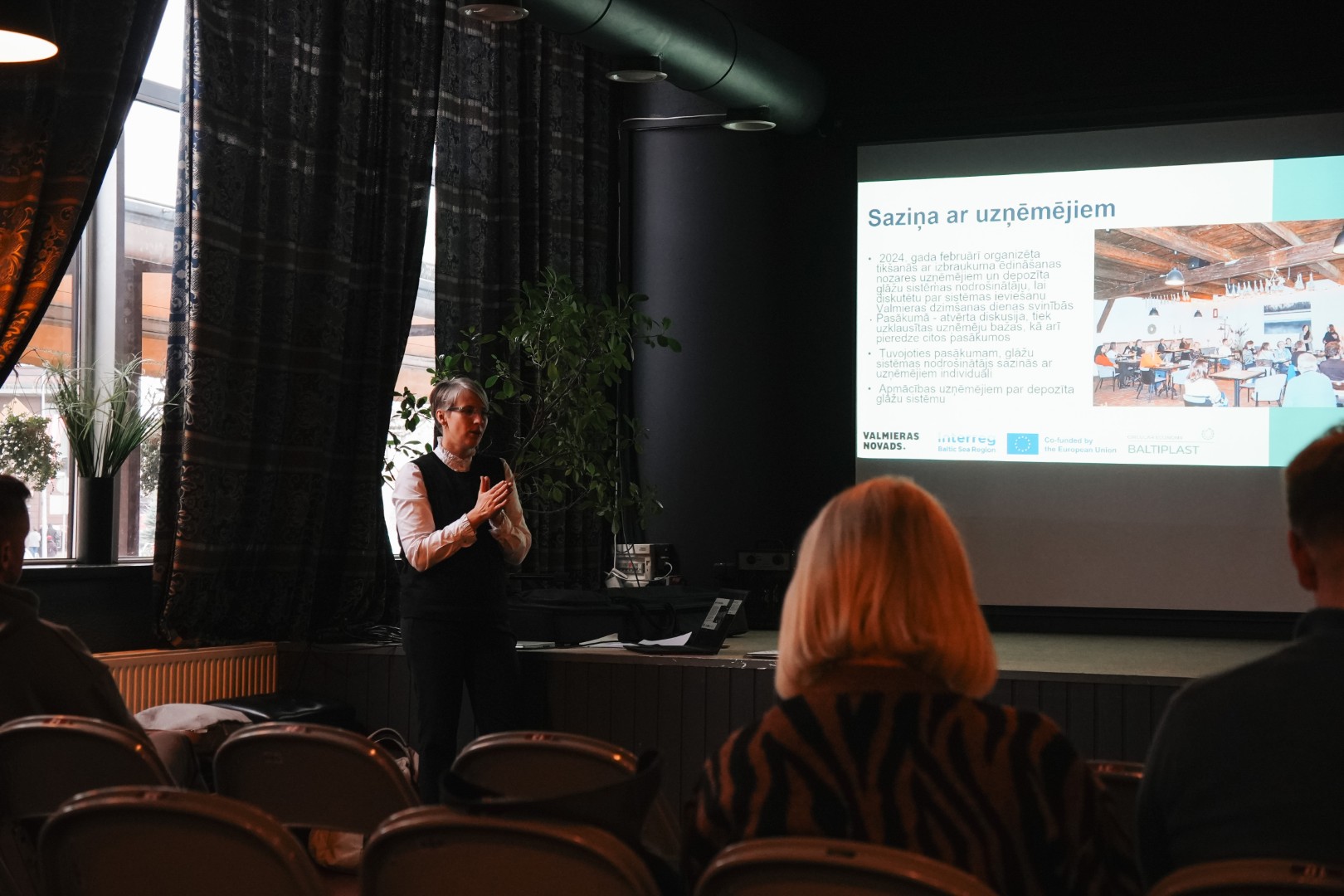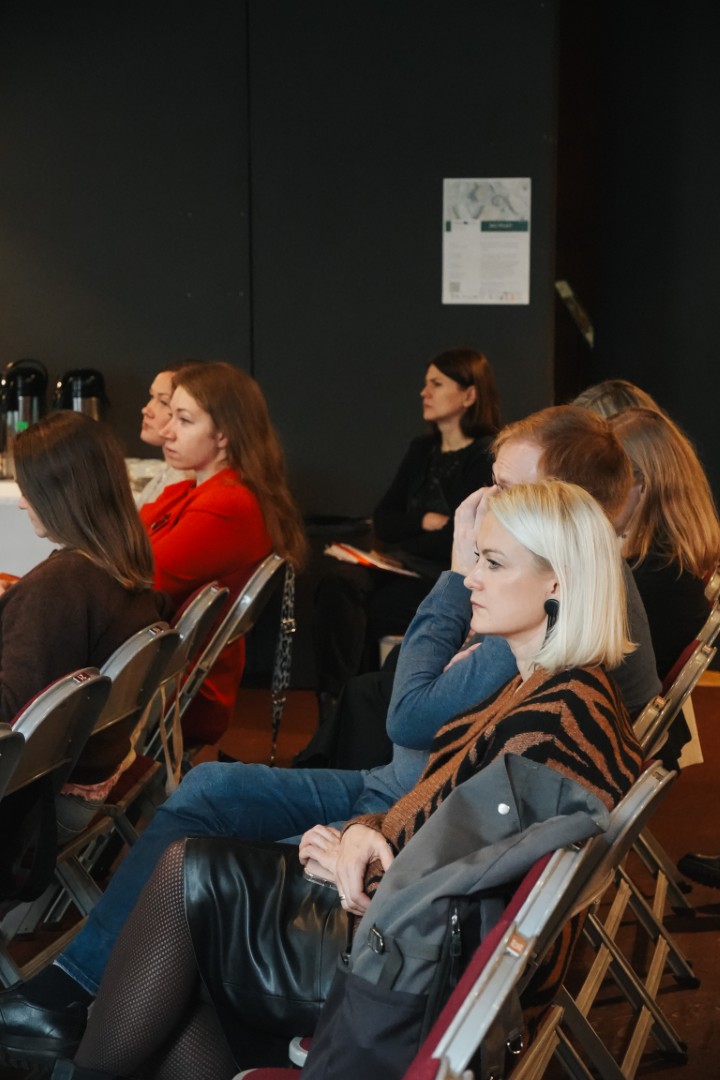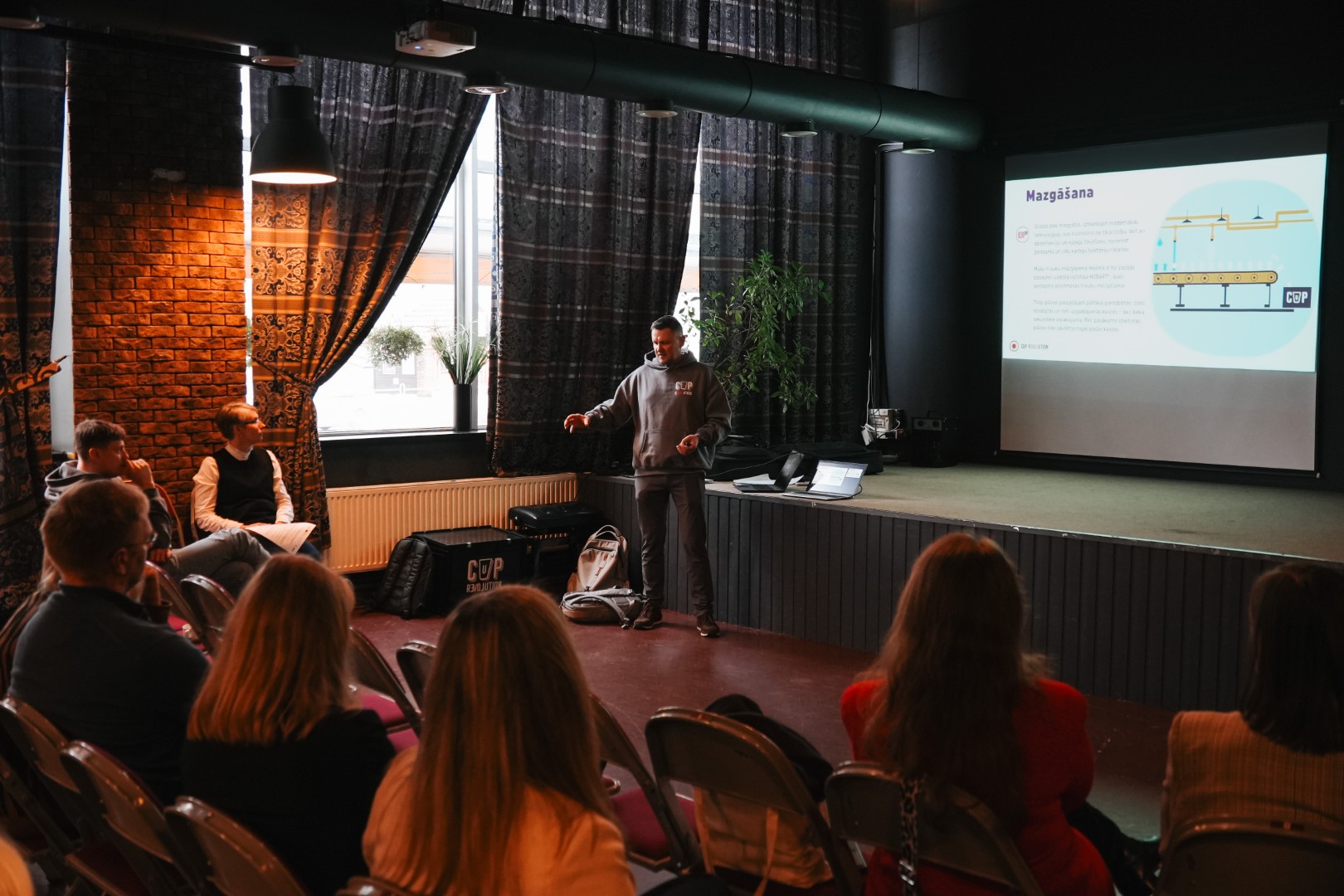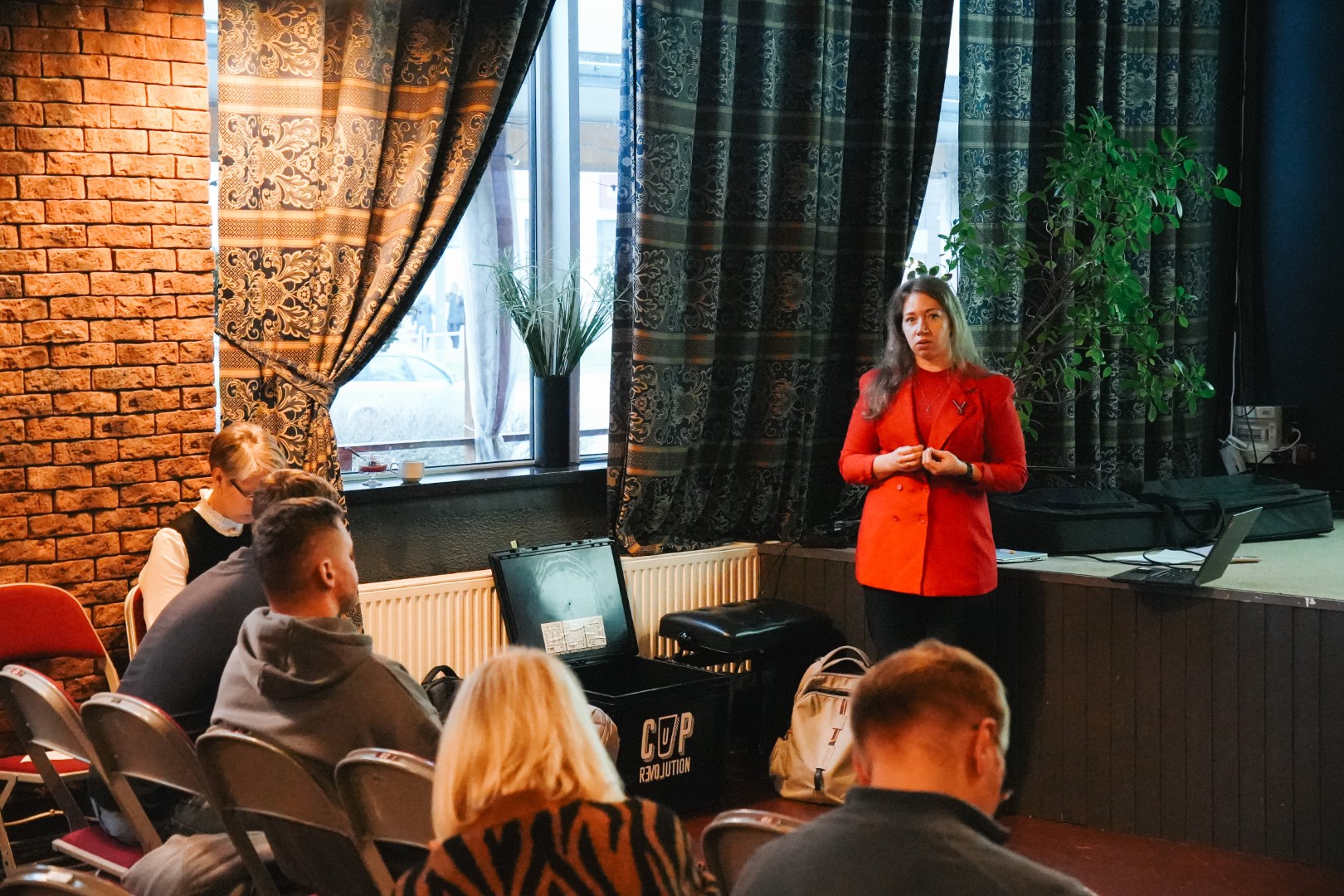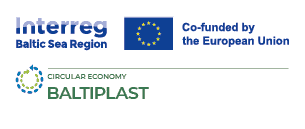
Valmiera Municipality Government shares its experience with introducing a reusable cup system at events
14 November 2025
On Wednesday, November 12, a seminar on the use of reusable tableware and waste sorting at public events was held with the participation of representatives of municipalities from surrounding regions, entrepreneurs, and specialists.
A presentation was held on the Valmiera municipality’s experience in introducing a reusable cup system at Valmiera City Festival in 2024 and 2025 as well as the introduction of the system at other major events in Valmiera region in 2025. Līga Bieziņa, Development Planner at the Development Department of Valmiera Municipality, shared her conclusions after two years of implementing the system.
Līga Bieziņa emphasized that one of the main conditions for successful implementation of the system is to engage with caterers in a timely manner to discuss not only the planned system and its implementation, but also to assess entrepreneurs’ readiness to participate as well as concerns about the implementation of the system. This also gives caterers the opportunity to prepare for the upcoming system on time. It is equally important that all businesses involved in providing catering for the event participate in the implementation of the system so that visitors are not confused about where they can and cannot get drinks in reusable cups. Finally, educating visitors about the cup system before and during the event plays a special role in the successful implementation of the system.
Representatives from “Cup Revolution Latvia” Ltd. shared their experience in providing reusable tableware systems for events. The company offers both cup rental and reusable tableware systems for events. The representatives shared the steps they take to ensure effective tableware circulation and what is necessary to provide a reusable cup system. Those present were happy to ask questions, learning more about the entrepreneur’s experience at various events.
During the discussion, the participants highlighted visitor satisfaction and ease of system use as important conditions for the introduction of a reusable cup system. Consistency is important, and it is essential that the event organizer does not change the conditions of the system each time. It is also recommended that local municipalities work with other public event organizers to ensure that the reusable cup system is the same as at other events in the region or city, as visitors get used to the system after just one event, or bring their own reusable cups to these events.
When participants were asked what they thought were the obstacles to reducing plastic, the most common responses were a lack of awareness and knowledge, as well as financial considerations. In order to stimulate plastic reduction, appropriate legislation and a common regulatory framework, as well as a common goal and vision across the country, are needed, with a particular focus on reducing single-use packaging and tableware at events. When asked about the resources needed to reduce plastic, the importance of awareness, public information, and knowledge was highlighted once again. Examples of good practice could also contribute to positive developments in this area. Most of the event participants expressed the view that reducing plastic would, first, reduce the amount of waste, second, promote a cleaner and greener living environment, and third, save money.
Līga Stokmane-Blaua, representative of the Baltic Environmental Forum, shared a valuable digital tool for local governments and businesses, which aims to support the reduction of single-use plastic consumption. The tool is available to anyone interested at dl4sd.org/, under the “BALTIPLAST” section.
Linda Veliverronena, representative of the Vidzeme University of Applied Sciences project “Change(K)now!”, shared examples of good practice in the introduction of reusable tableware systems, as well as less successful experiences in introducing these systems at events, as well as the experiences of various European cities in the field of sustainable food distribution chains.
Elizabete Brūvere,
Valmiera Municipality Government






